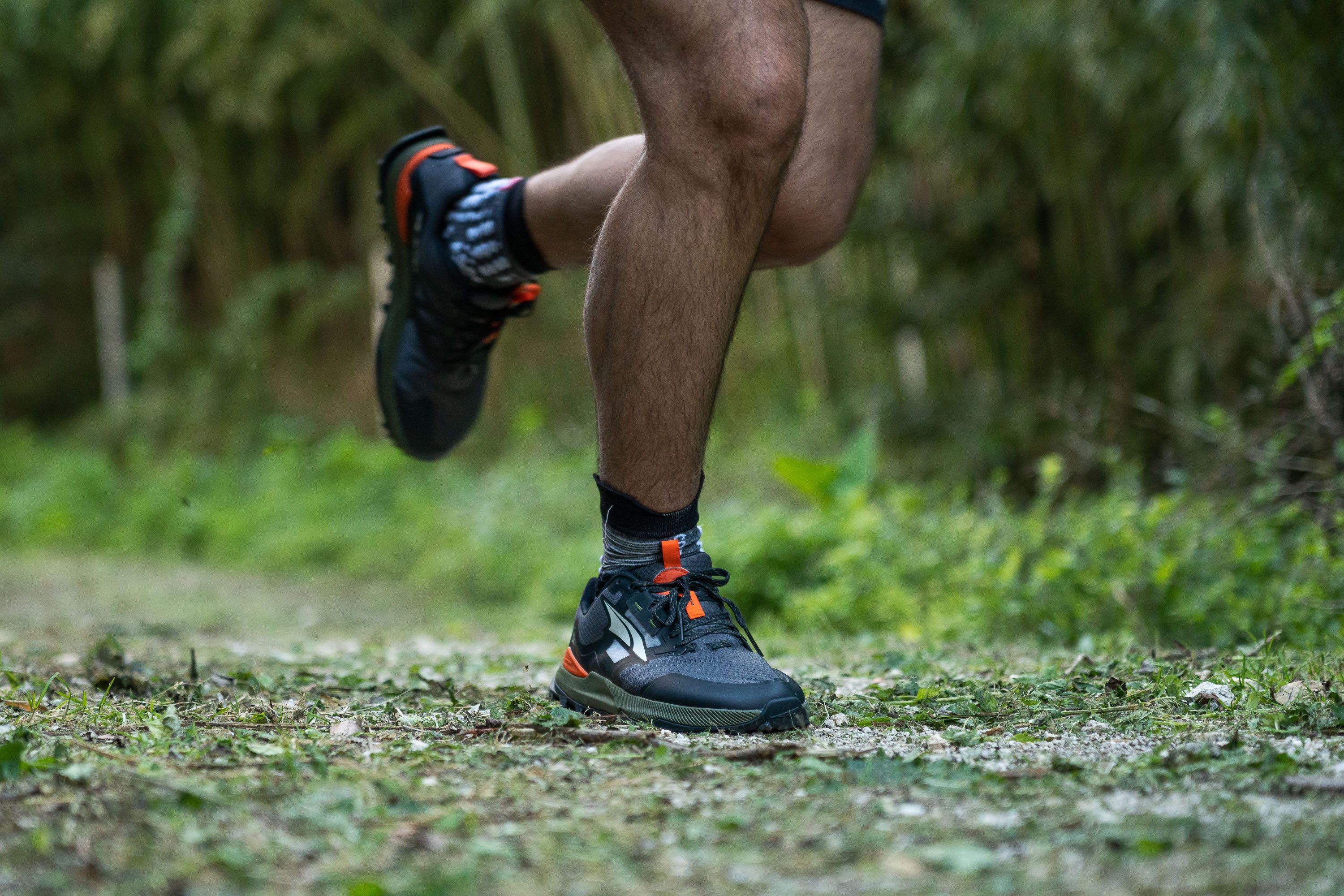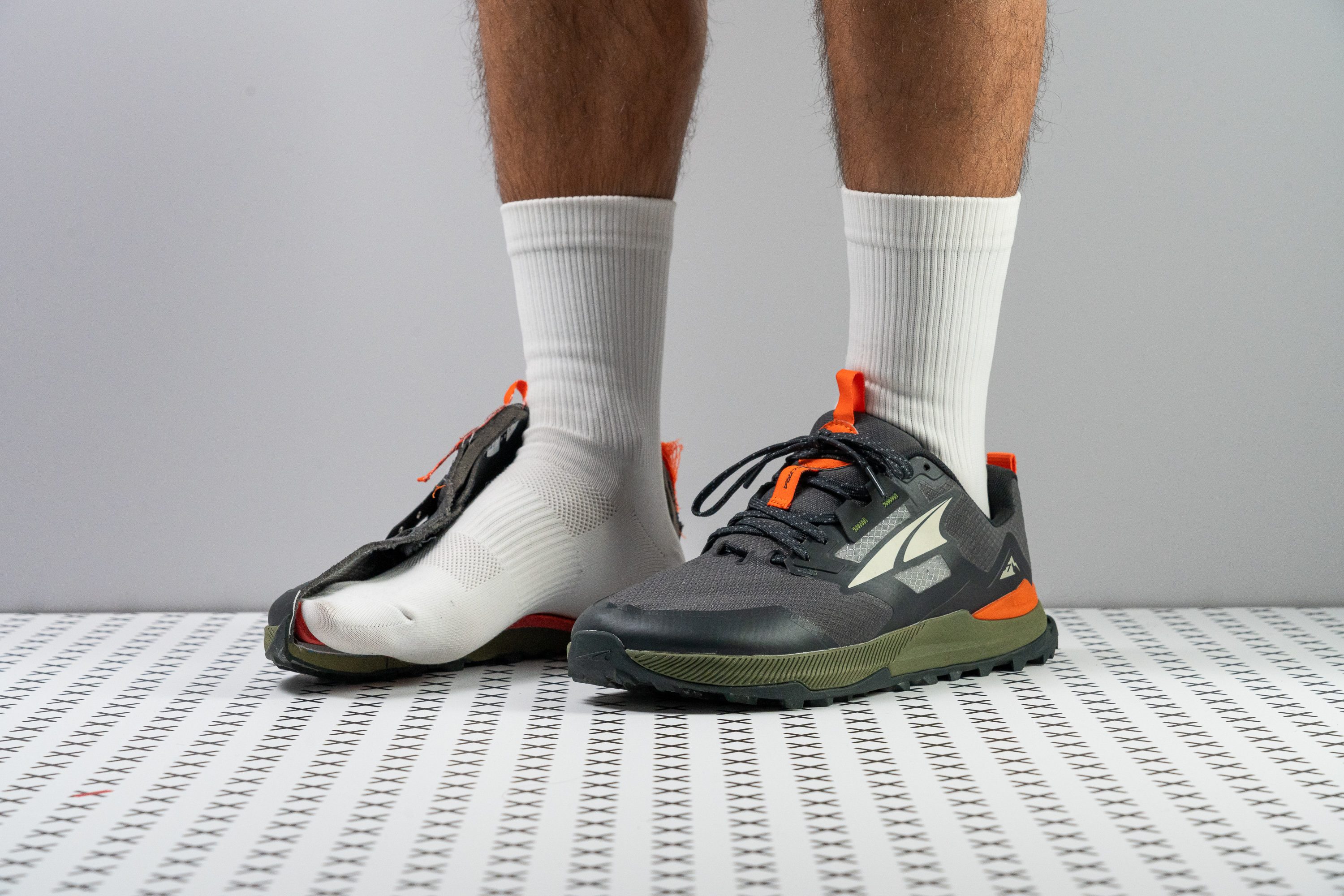Our verdict
- Top pick in best snow running shoes (2023)
- Top pick in best zero drop running shoes (2023)
Pros
- Very wide toebox
- Protective midsole
- Superb lockdown
- Super grippy outsole
- Excellent for fast runs in the mountains
- Added heel cup provides stability
- Super comfy
- Easy to clean
Cons
- Colorways might be a downer
- A bit pricey
Audience verdict
Comparison
The most similar running shoes compared
+ + Add a shoe | |||||
|---|---|---|---|---|---|
| Audience score | 86 Good! | 81 Good! | 91 Superb! | 80 Good! | |
| Price | $150 | $130 | $140 | $155 | |
| Trail terrain | Moderate | Light | LightModerate | LightModerate | |
| Shock absorption | - | - | Low | Moderate | |
| Energy return | - | - | Moderate | Low | |
| Arch support | Neutral | Neutral | Neutral | Neutral | |
| Weight lab Weight brand | 10.4 oz / 294g 11 oz / 312g | 9.2 oz / 261g 10.7 oz / 303g | 10.9 oz / 309g 10.4 oz / 295g | 9.5 oz / 269g 9.8 oz / 277g | |
| Drop lab Drop brand | 0.2 mm 0.0 mm | 0.6 mm 0.0 mm | 0.0 mm 0.0 mm | -0.1 mm 0.0 mm | |
| Strike pattern | Mid/forefoot | Mid/forefoot | Mid/forefoot | Mid/forefoot | |
| Size | True to size | Slightly small | True to size | Half size small | |
| Midsole softness | Balanced | Balanced | Balanced | Balanced | |
| Difference in midsole softness in cold | Normal | Normal | Normal | Small | |
| Toebox durability | - | Decent | Decent | Good | |
| Heel padding durability | - | Bad | Decent | Decent | |
| Outsole durability | - | Bad | Good | Good | |
| Breathability | Moderate | Warm | Warm | Moderate | |
| Width / fit | Narrow | Medium | Wide | Wide | |
| Toebox width | - | Wide | Wide | Wide | |
| Stiffness | Stiff | Stiff | Moderate | Stiff | |
| Torsional rigidity | Flexible | Moderate | Moderate | Stiff | |
| Heel counter stiffness | Flexible | Flexible | Flexible | Moderate | |
| Lug depth | 3.4 mm | 1.5 mm | 3.8 mm | 3.0 mm | |
| Heel stack lab Heel stack brand | 23.3 mm 25.0 mm | 23.8 mm 27.0 mm | 23.3 mm 25.0 mm | 28.6 mm 29.0 mm | |
| Forefoot lab Forefoot brand | 23.1 mm 25.0 mm | 23.2 mm 27.0 mm | 23.3 mm 25.0 mm | 28.7 mm 29.0 mm | |
| Widths available | NormalWide | Normal | NormalWide | Normal | |
| Season | All seasons | All seasons | All seasons | All seasons | |
| Removable insole | ✓ | ✓ | ✓ | ✓ | |
| Orthotic friendly | ✓ | ✓ | ✓ | ✓ | |
| Ranking | #407 Bottom 40% | #313 Bottom 18% | #26 Top 7% | #321 Bottom 16% | |
| Popularity | #276 Top 41% | #283 Bottom 26% | #41 Top 11% | #146 Top 39% |
Size and fit
Size
Altra Lone Peak 7 fits true to size (67 votes).
Who should buy the Altra Lone Peak 7
We found that the Altra Lone Peak 7 is most suitable for trail runners and outdoor enthusiasts looking for the following:
- a pair of all-around trail shoes for various types of terrain
- excellent grip and lockdown in trail shoes
- adequate cushioning and a wide toe box for all-day comfort
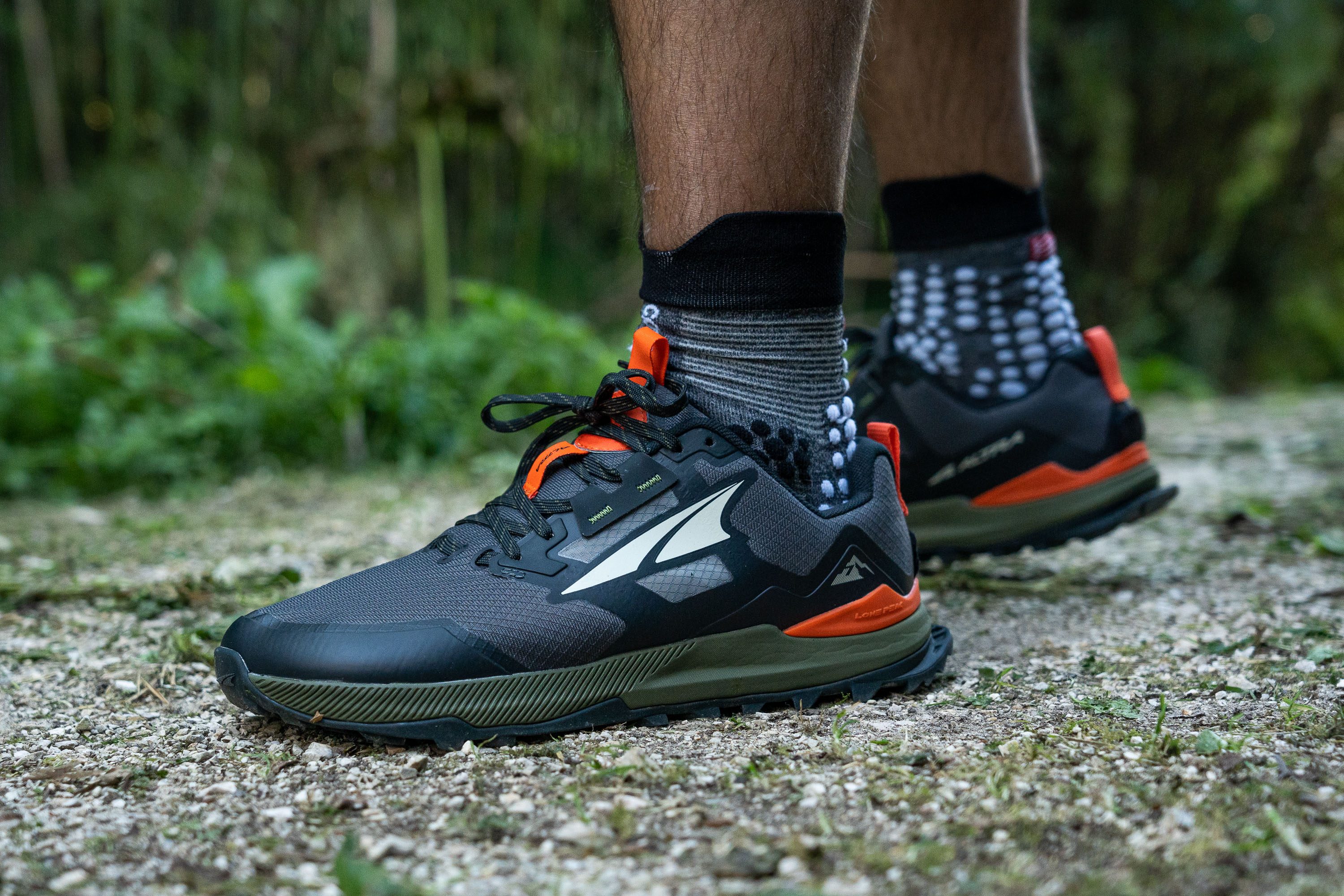
Who should NOT buy the shoe
The Altra Lone Peak 7 might not be the best choice if you find it a bit over your spending limit. The more affordable Altra Superior 6 could be a better choice in this case.
Also, if colorways are an issue, we suggest the Altra Timp 4 which offers more colors that might suit your needs better.
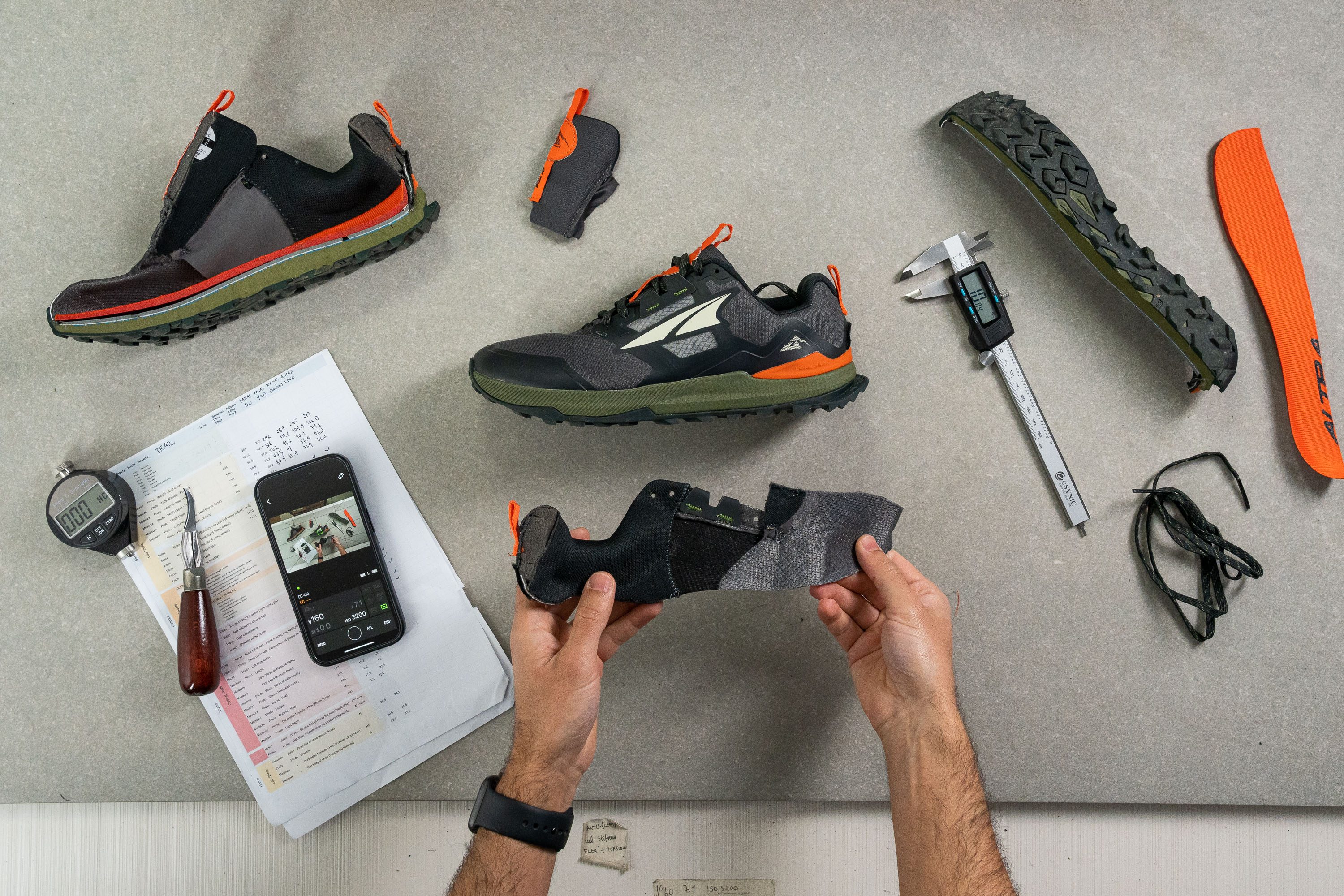
Breathability is just right
The Lone Peak 7 never felt too hot on our feet and we found the airflow quite decent to keep us comfortable.
Assessing the amount of smoke passing through the fabric in our smoke pumping machine test, we rated the shoe's breathability as 3 out of 5. This is considered an average for trail running shoes.
You can see where the most breathable fabric of the shoe is in the transparency test below.
The top area is not very breathable due to the heavily padded tongue. The tongue is shockingly thick on the Lone Peak 7! We measured it at 10.1 mm whereas the average is 6 mm.
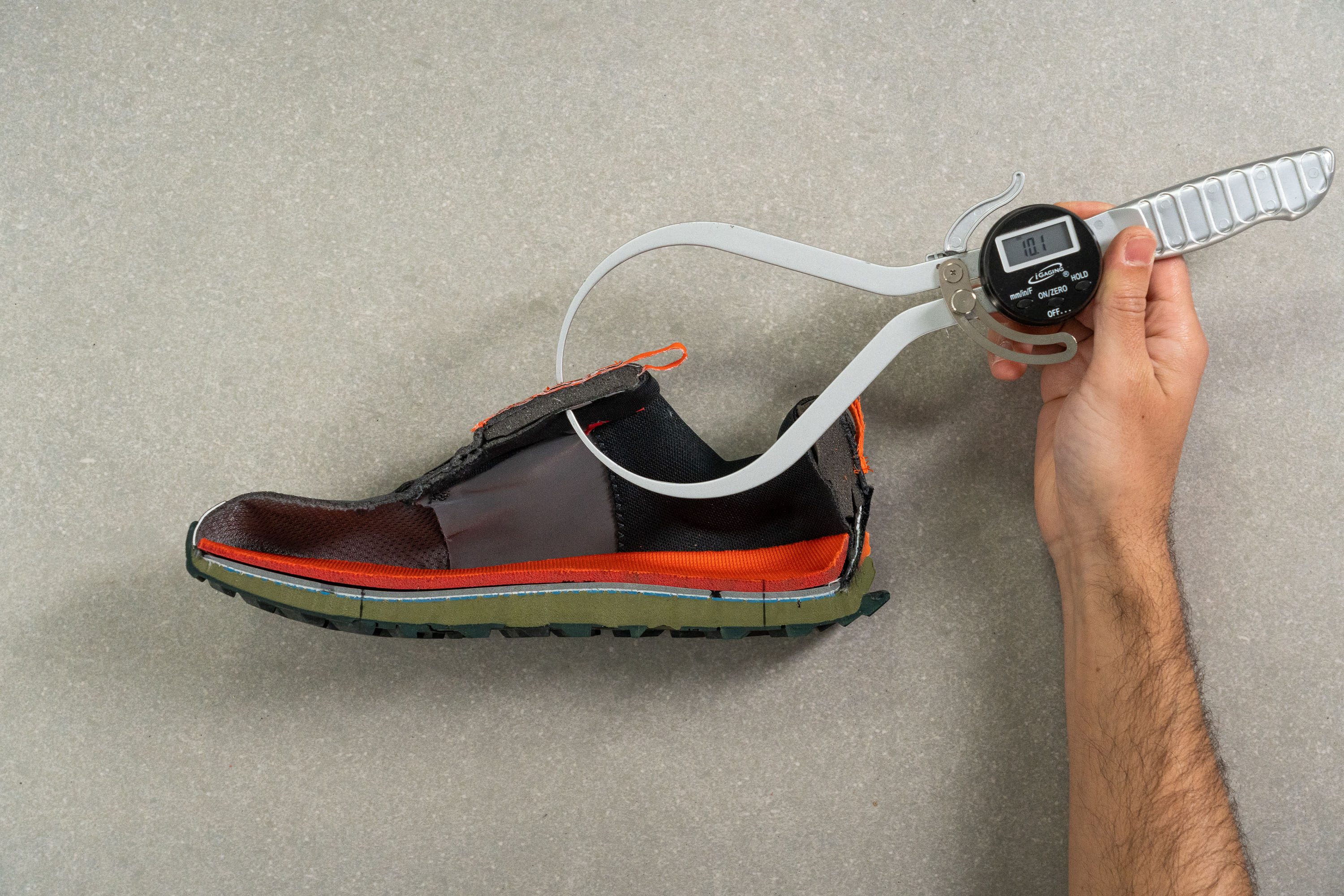
A cushion that’s unexpectedly plush and just right
The Altra Lone Peak 7 feels very well cushioned for how thin it is.
Checking the stack height with calipers, we found that the stack of the shoe is a little thinner than the stated 25 mm. Our measurements show 23.3 mm in the heel and 23.1 mm in the forefoot.
This is pretty thin for a trail shoe indeed. However, it was always enough to prevent rocks and roots from hurting our feet.
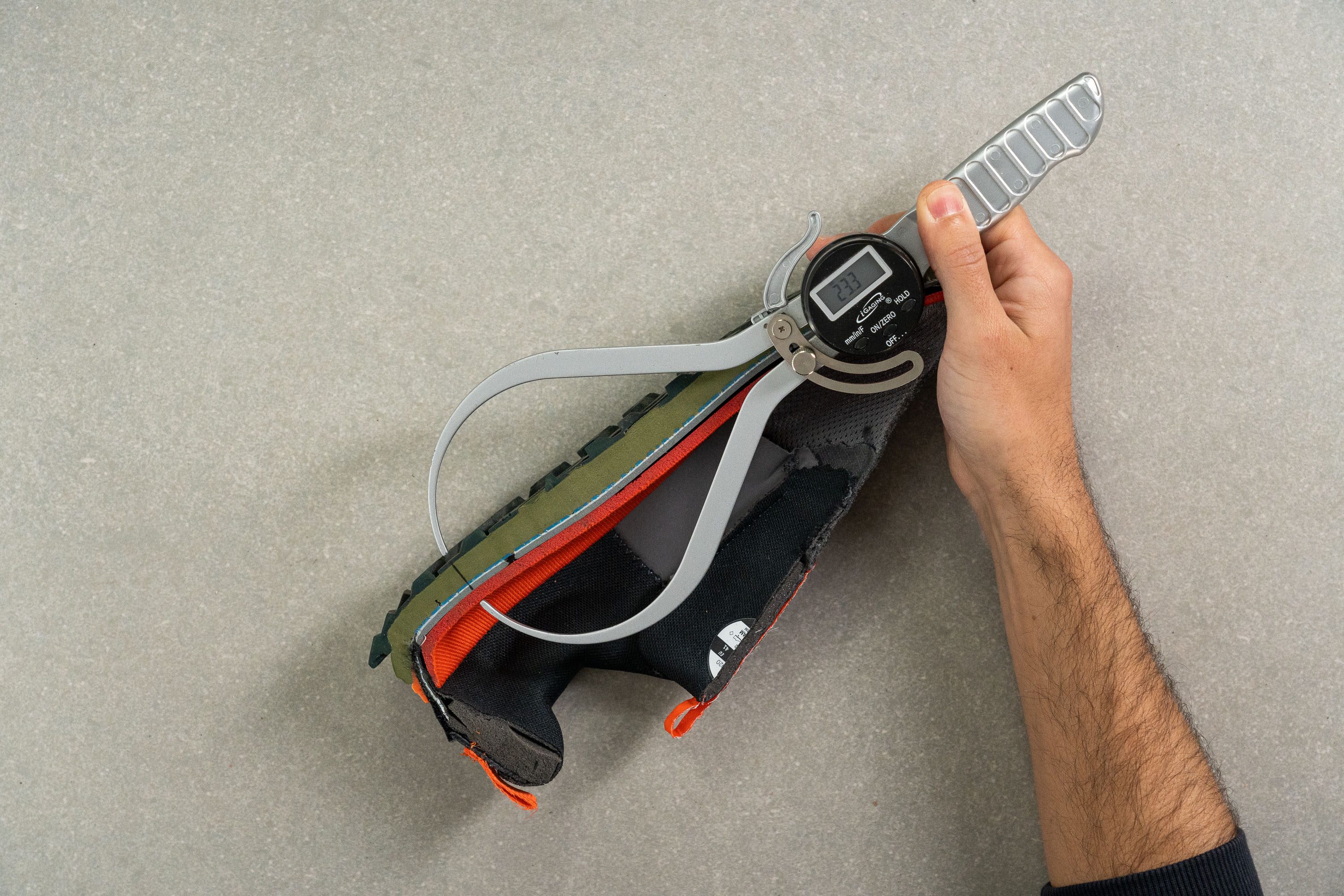
But we can confirm that this Altra shoe stays true to its Zero Drop branding. Based on our test, it is 0.2 mm.
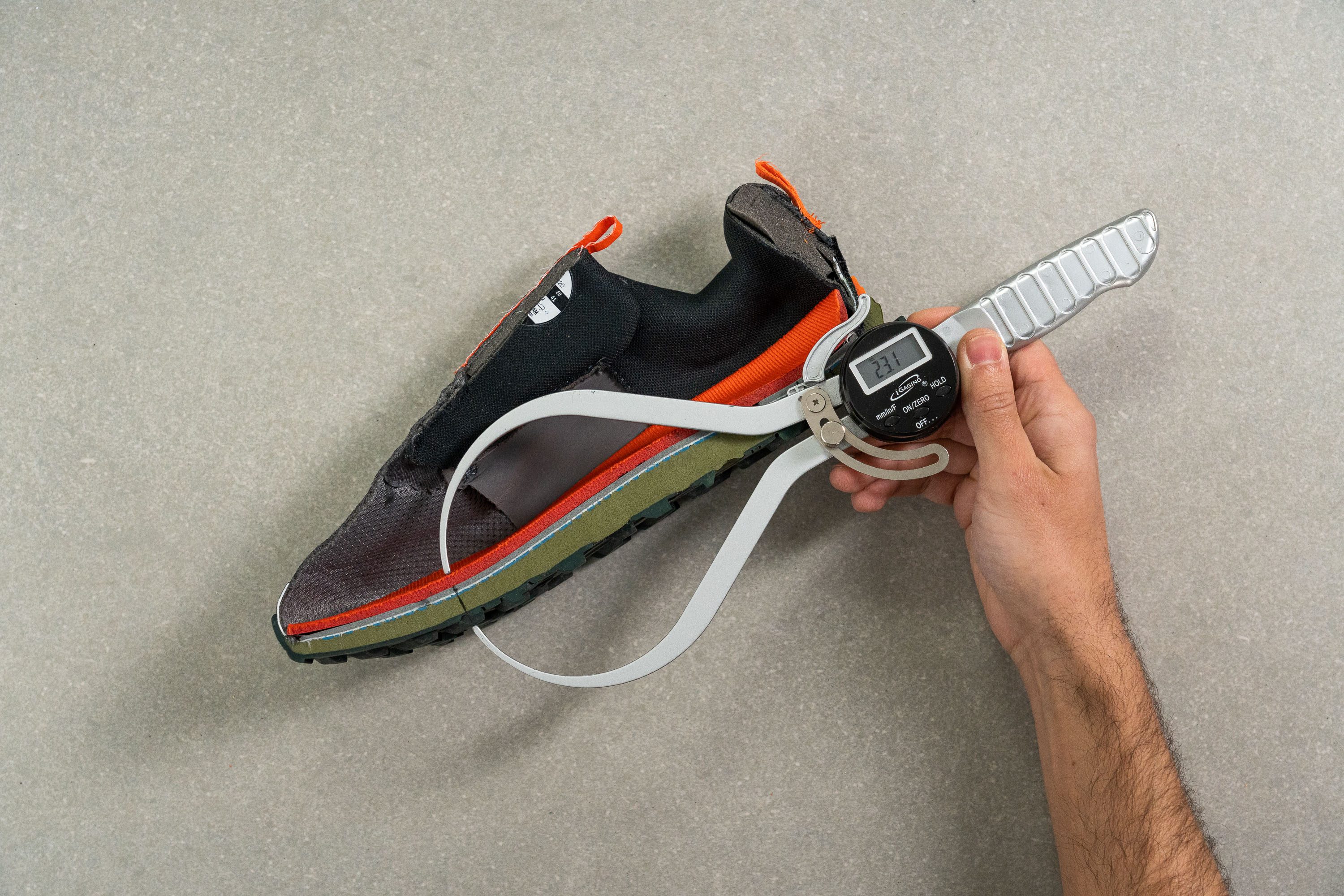
The insole in the Lone Peak 7 is of average thickness - 4.6 mm in the heel.
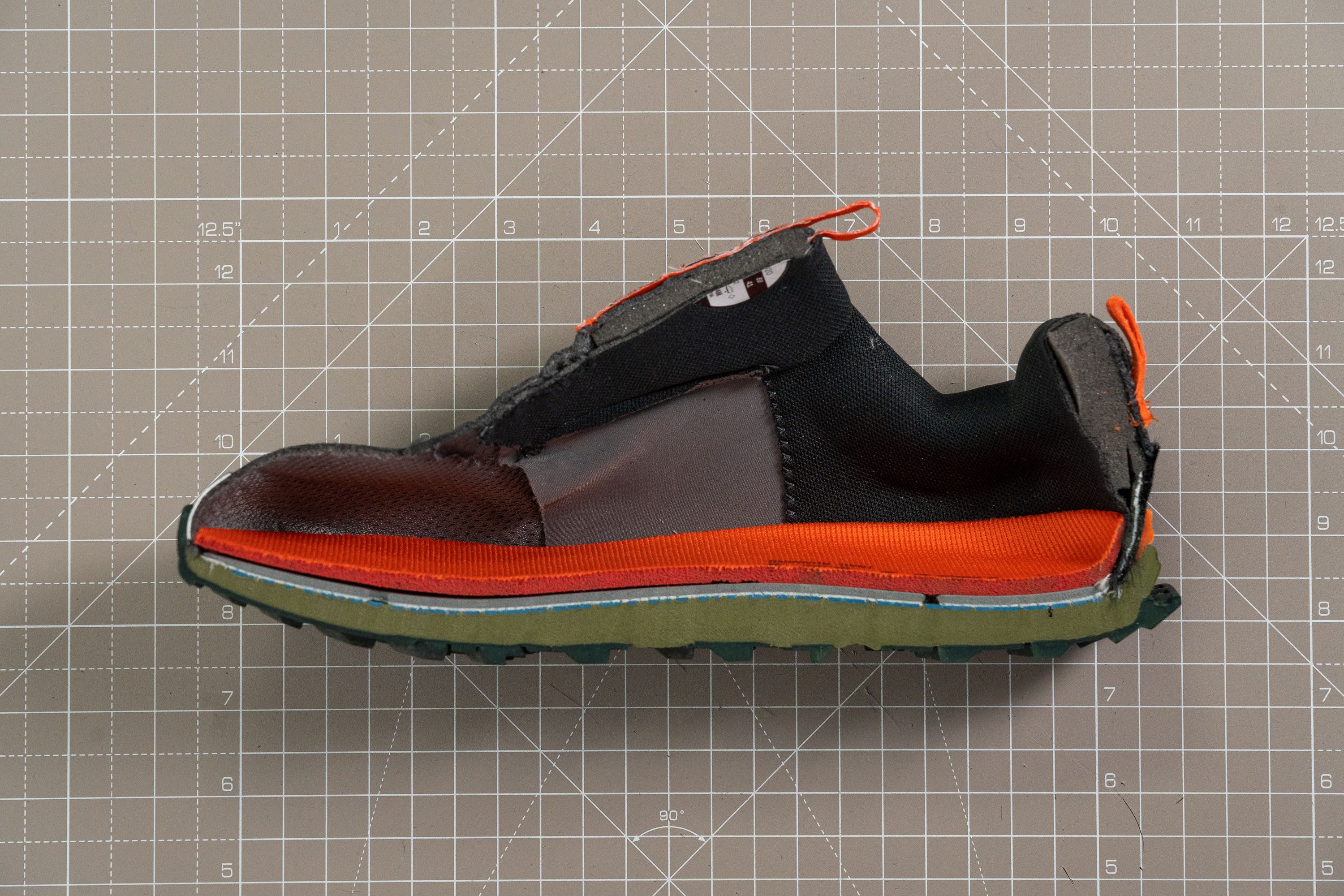
As for the foam's softness level, our durometer measurements show that the Altra Lone Peak 7 has an average level of firmness. We describe this type of cushioning as balanced.
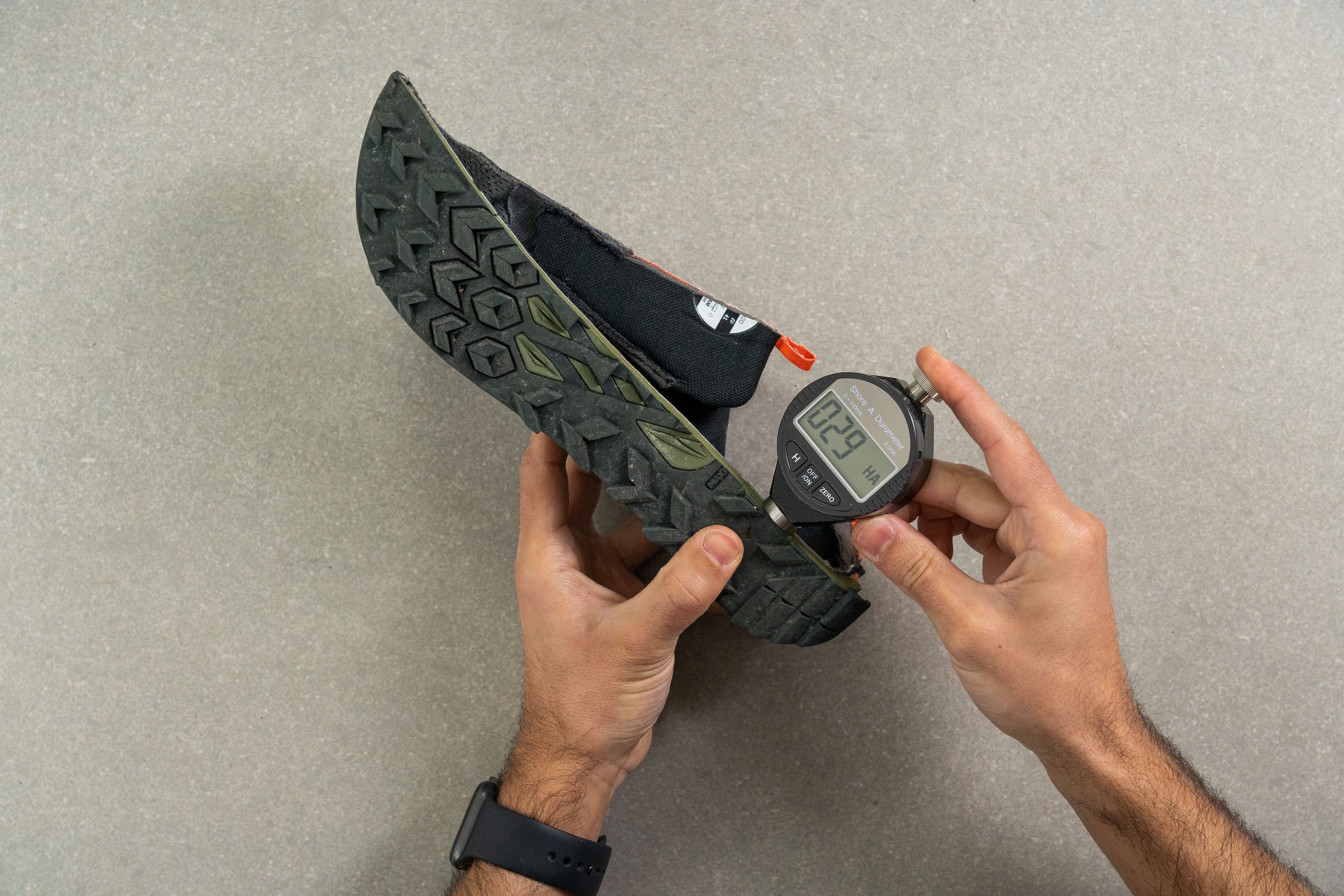
To see how the foam behaves when the temperatures drop, we put the shoe in the freezer for 20 minutes and measured its softness again. The cushioning got 25.7% firmer which is the normal difference for trail shoes. What it means for the runner is that the shoe might take some breaking in on a chilly day.
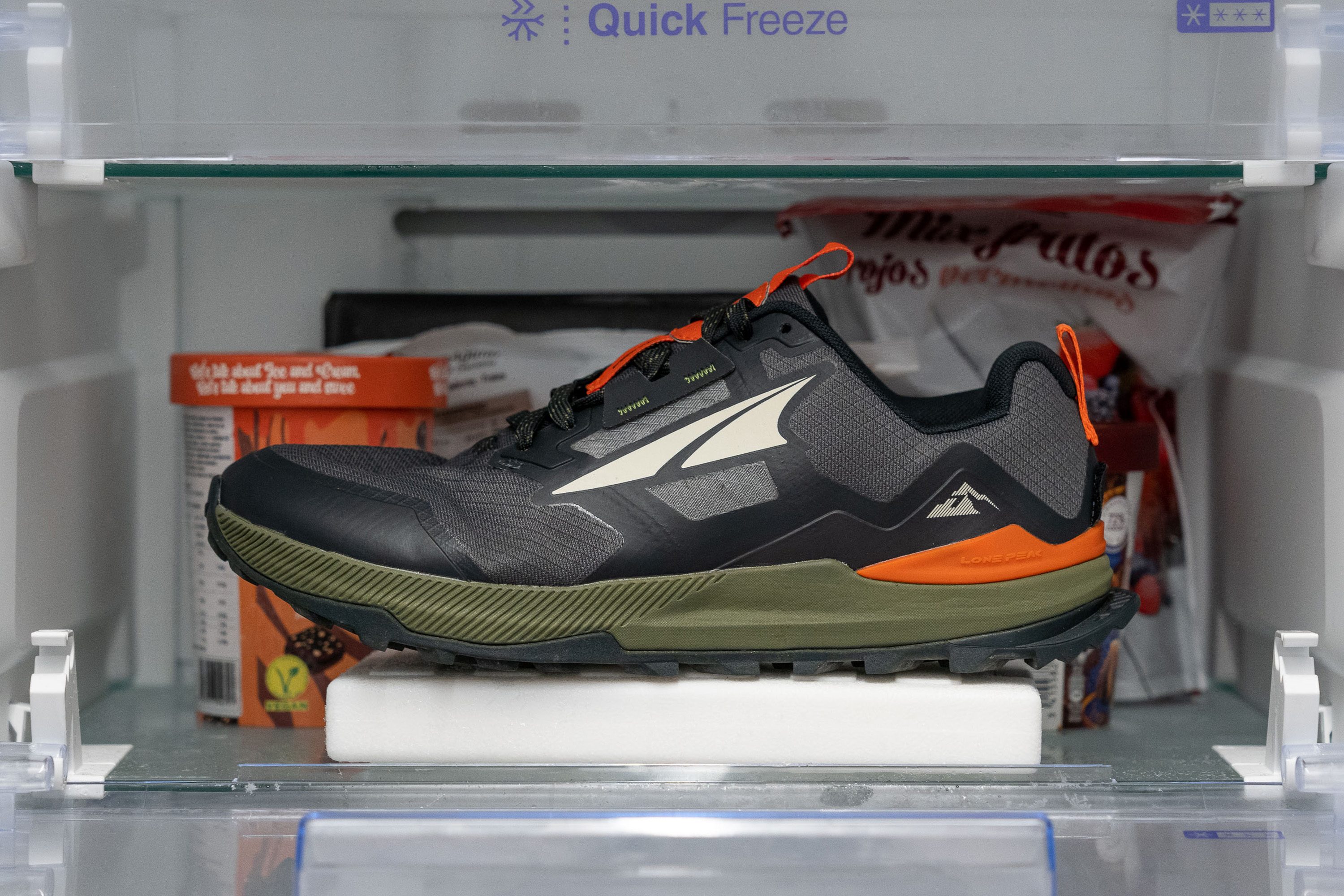
More confidence to pick up the pace in the Lone Peak 7
We think that Altra achieved a perfect balance of plushness, rigidity, and responsiveness to make the Lone Peak 7 a very nimble option compared to maximalist trail runners on the market.
Flexible trail runner
Contributing to a sense of nimbleness is the shoe's flexible design. We measured the shoe's resistance to bending and found that it is 25% more flexible than trail running shoes on average.
In our manual assessment of twisting and bending the Lone Peak, it proved to be pliable as well. On a 1-5 scale, where 1 is the most flexible, we rated its longitudinal and torsional flexibility as 2.
No compromises on stability
In addition to being a very agile shoe, the Altra Lone Peak 7 doesn't skimp on stability either. With its low-to-the-ground profile and wide base, the shoe won't let the ankles roll that easily.
Even though it is not among the widest trail shoes, the Lone Peak 7 has a decent width to it to keep you stable when traversing challenging terrains. In the forefoot, we measured it to be 106 mm...
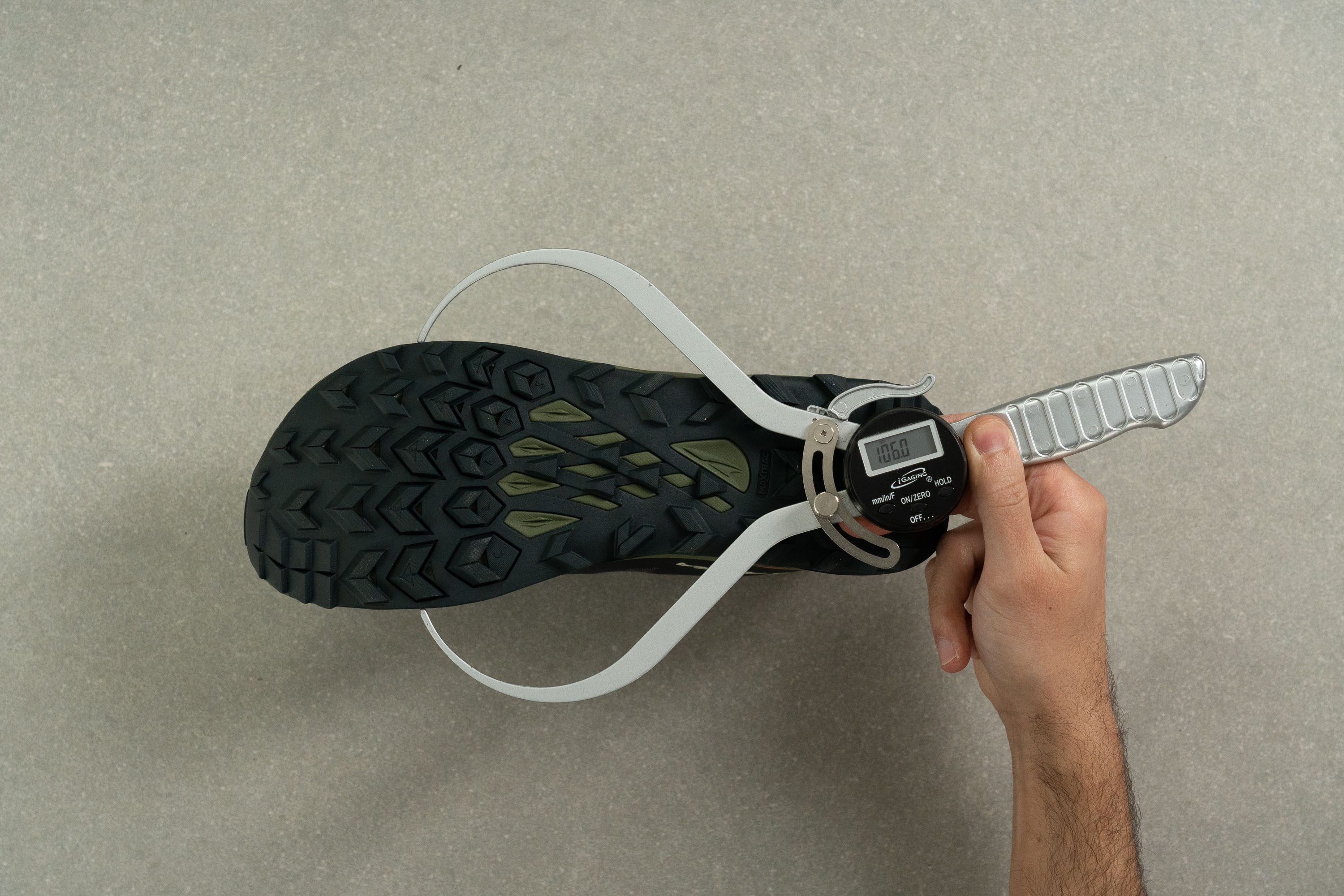
...and in the heel, it is 79.8 mm.
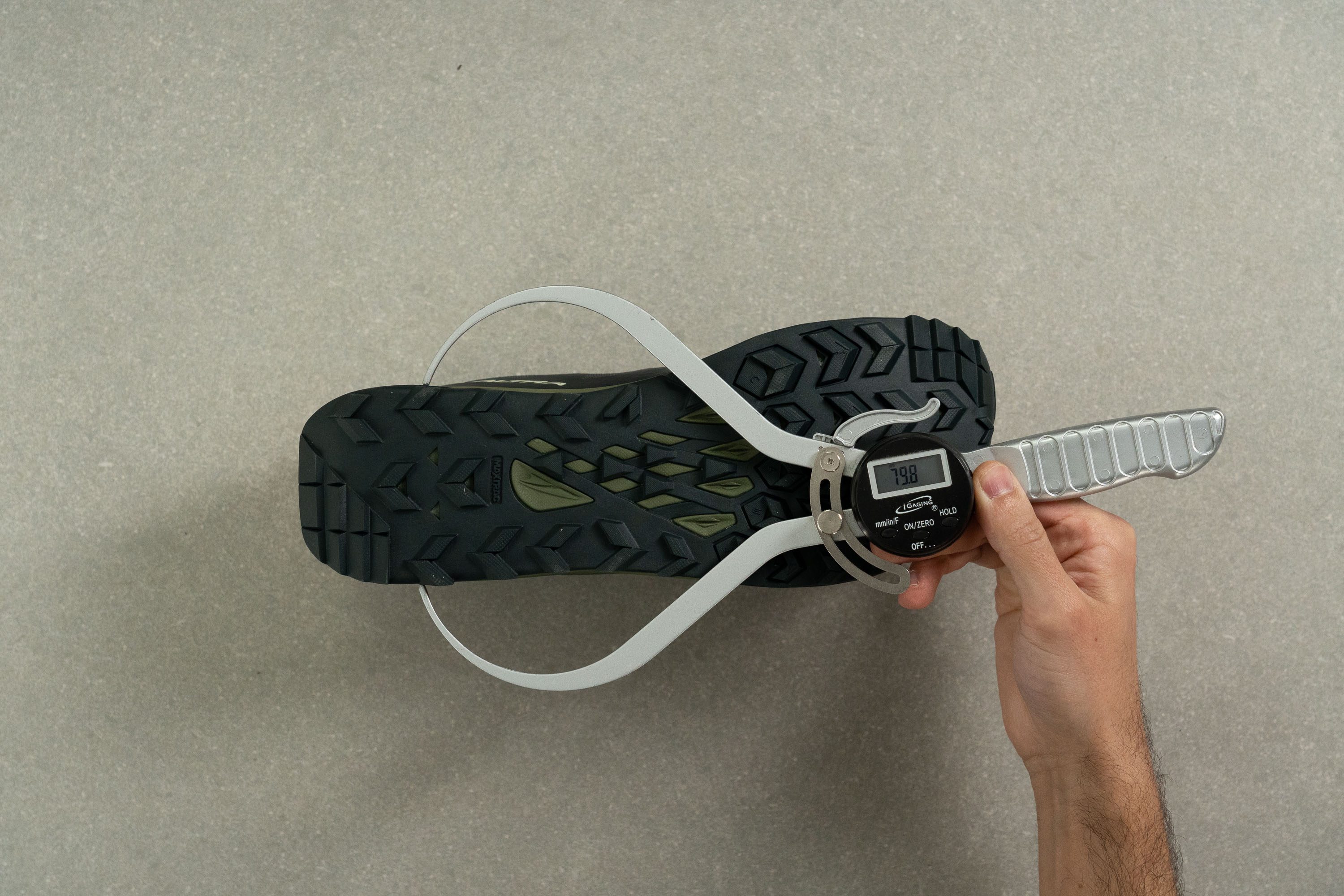
If you need a wider platform in a trail shoe, consider Hoka Speedgoat 5.
Keeps the foot locked in for the outdoors
The presence of a gusseted tongue plays its part in the lockdown and keeps debris out of the interiors.
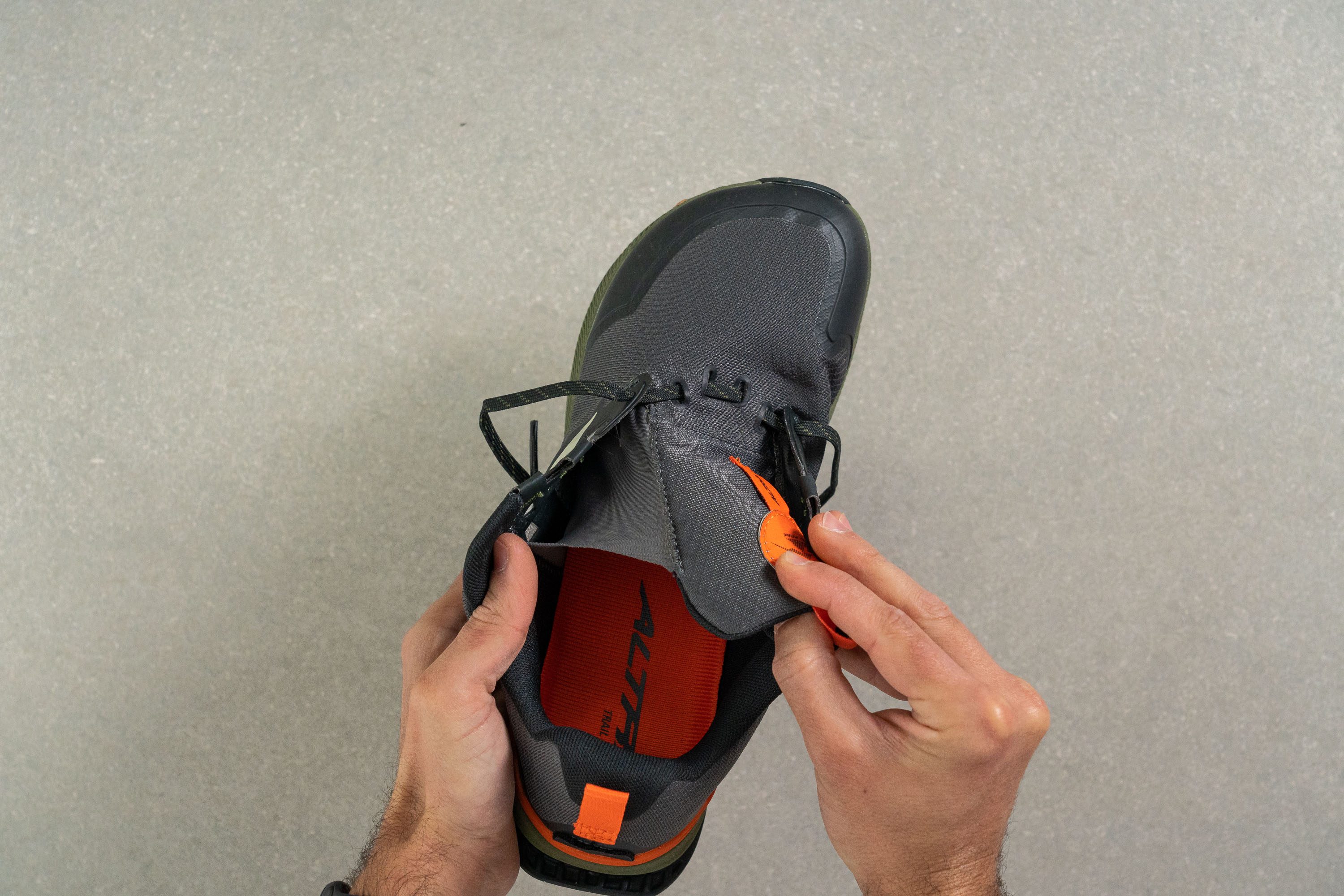
Also, tight twists and turns were not a problem for us thanks to the new ghillie-style lacing.
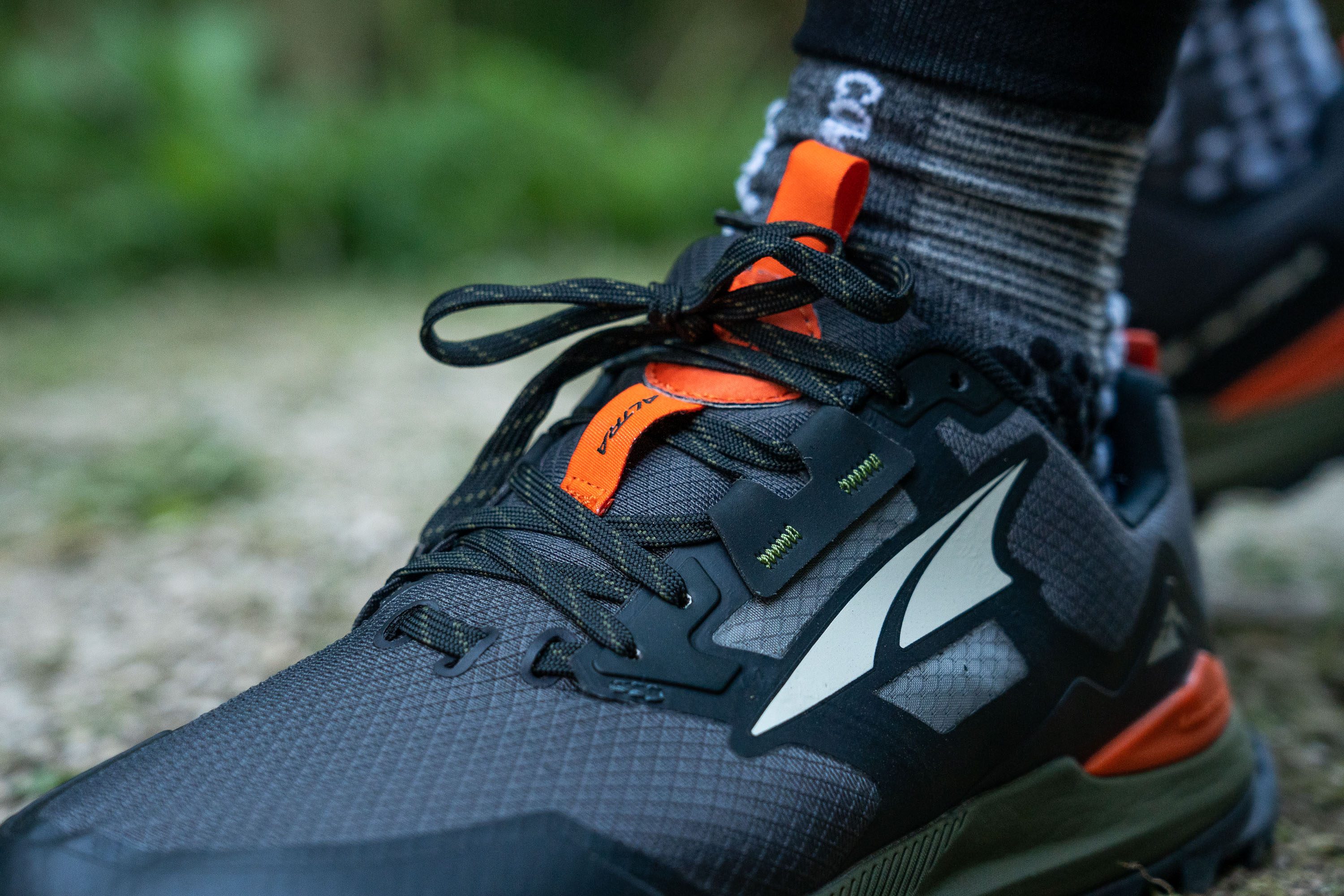
We also highly appreciated the added heel cup on this version. This added just a touch of guidance to the ankle.
It is not a stiff heel counter though. On a 1-5- scale where 5 is the stiffest, we ranked it at 2.
Comfier trails ahead with the Altra Lone Peak 7
One of the shoe's major highlights is of course the accommodating toe box. It is unbelievably spacious with its rounded shape that remains wide even around the toes (where most shoes become too narrow). This design allows toes to have a more natural splaying upon ground contact.
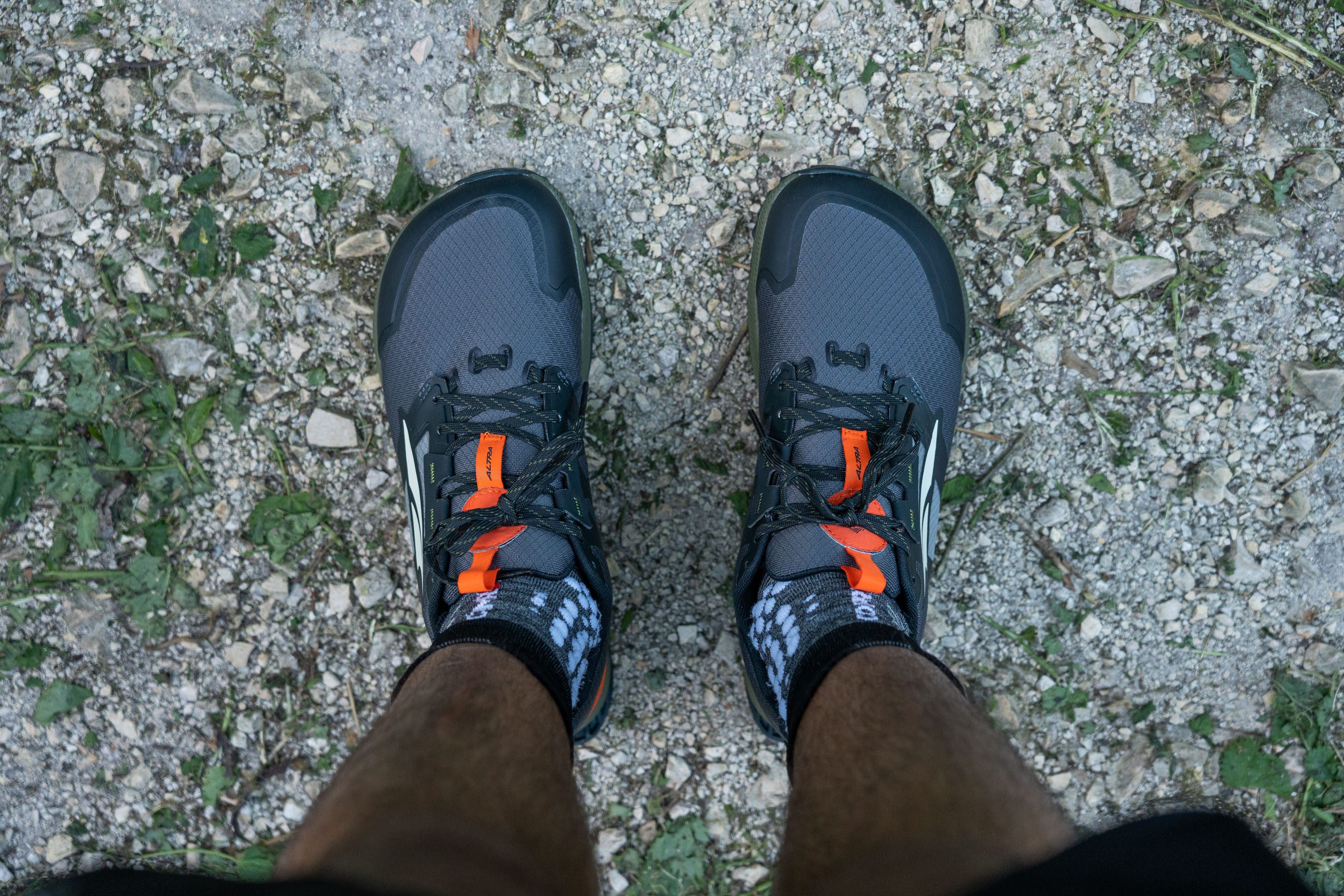
A grippy outsole that lets you trust the Altra Lone Peak 7
This Altra shoe comes with a confidence-inspiring outsole!
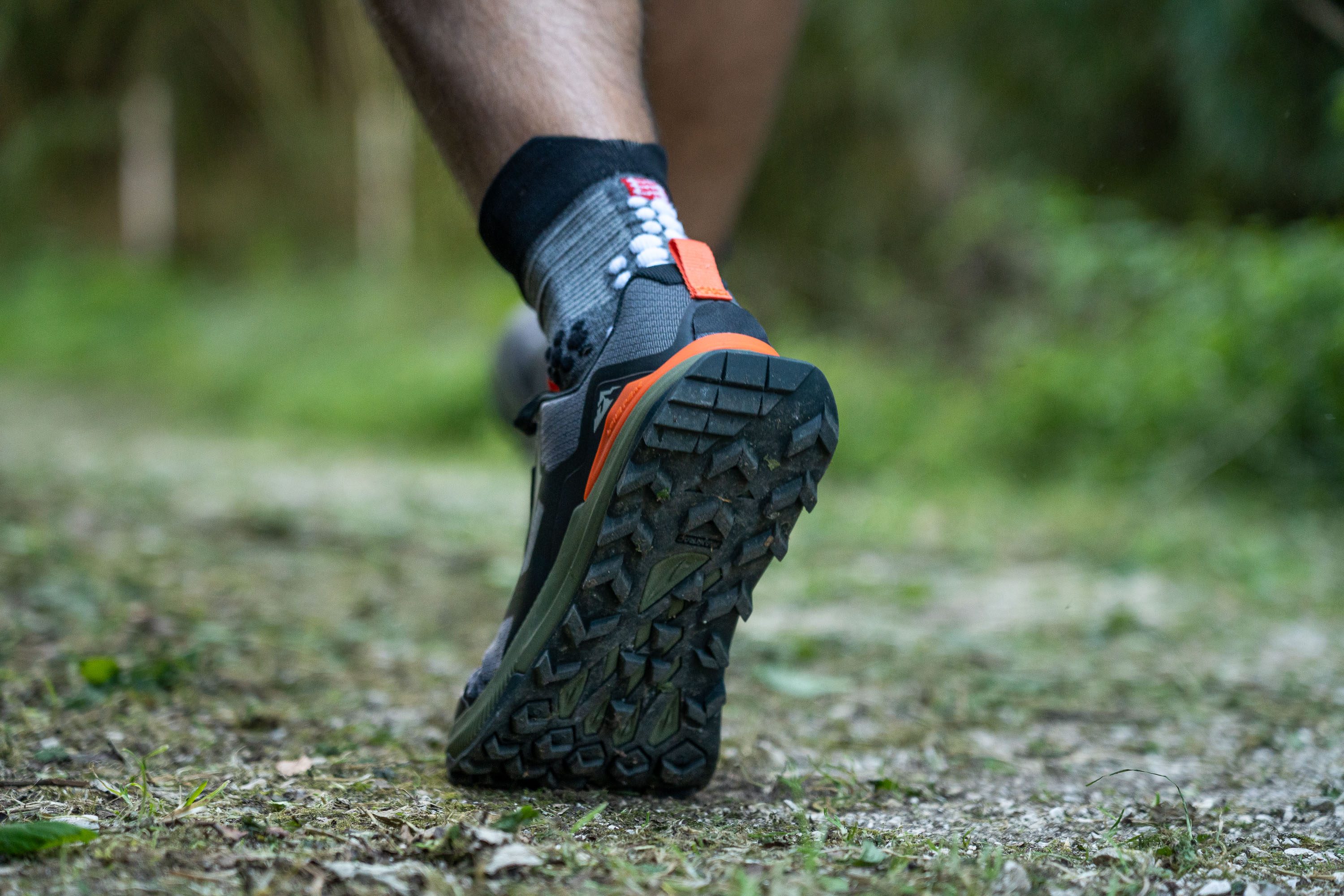
Taking on singletrack turns at high speeds felt like a piece of cake thanks to the reliable grip and traction of the Lone Peak 7. We found the shoe's bite to be solid even in mud, puddles, and on wet pavement.
We measured the lug depth on the Altra Lone Peak at 3.4 mm. This is a solid depth for trail shoe treading.
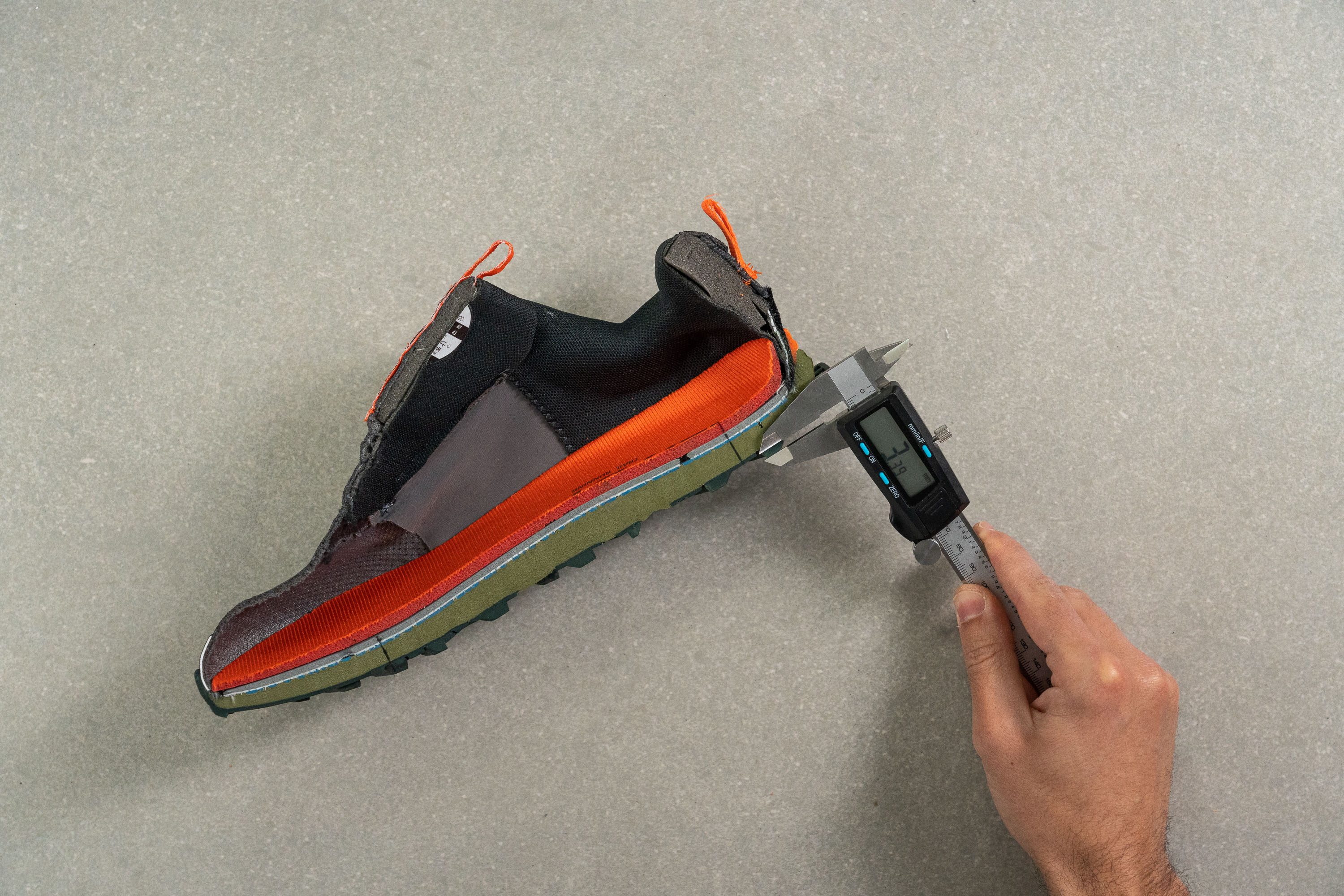
Despite the beefier lugs of the Altra Lone Peak 7, we found it to be pretty easy to clean up. The shoe actually did it for us while we were still on the run.
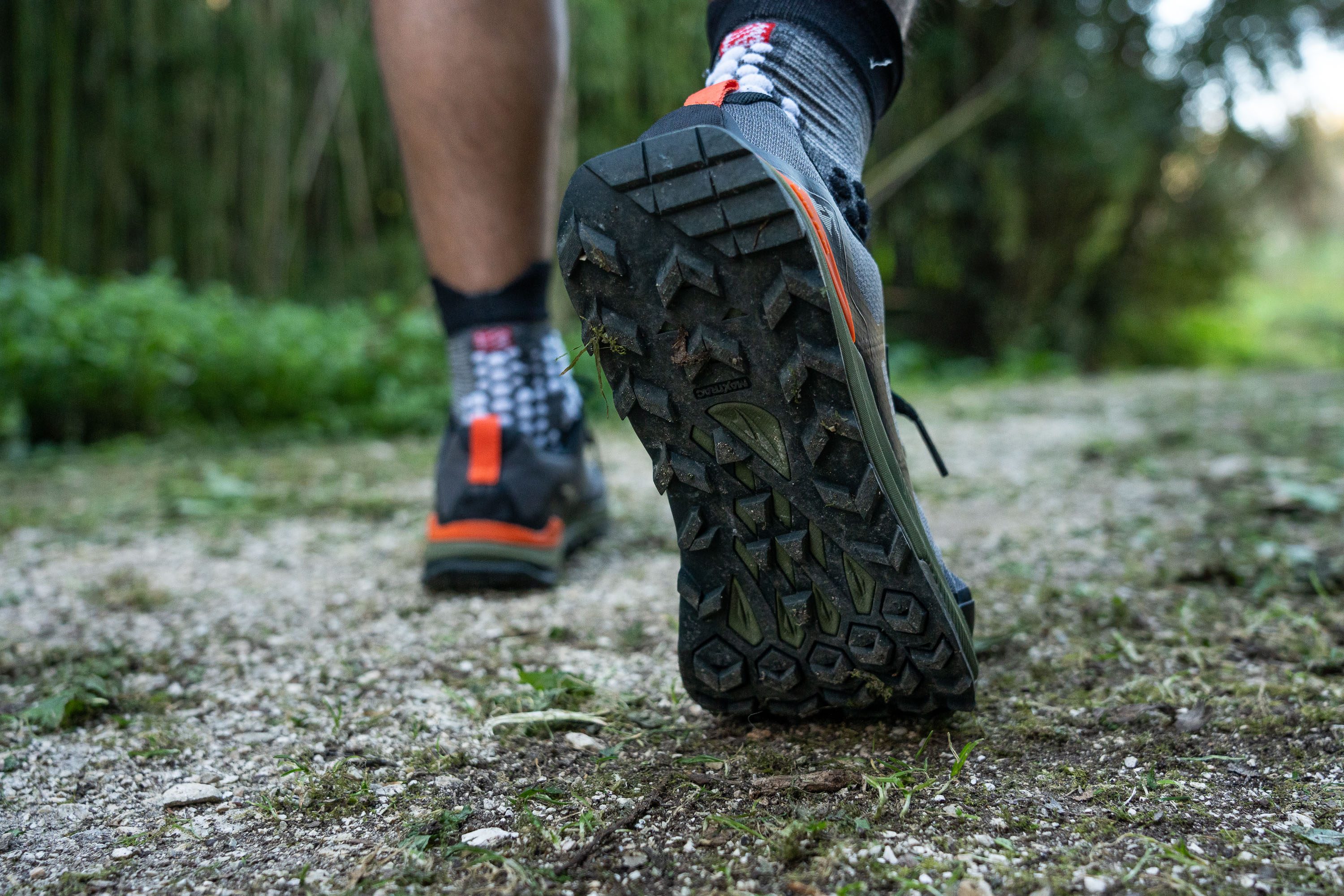
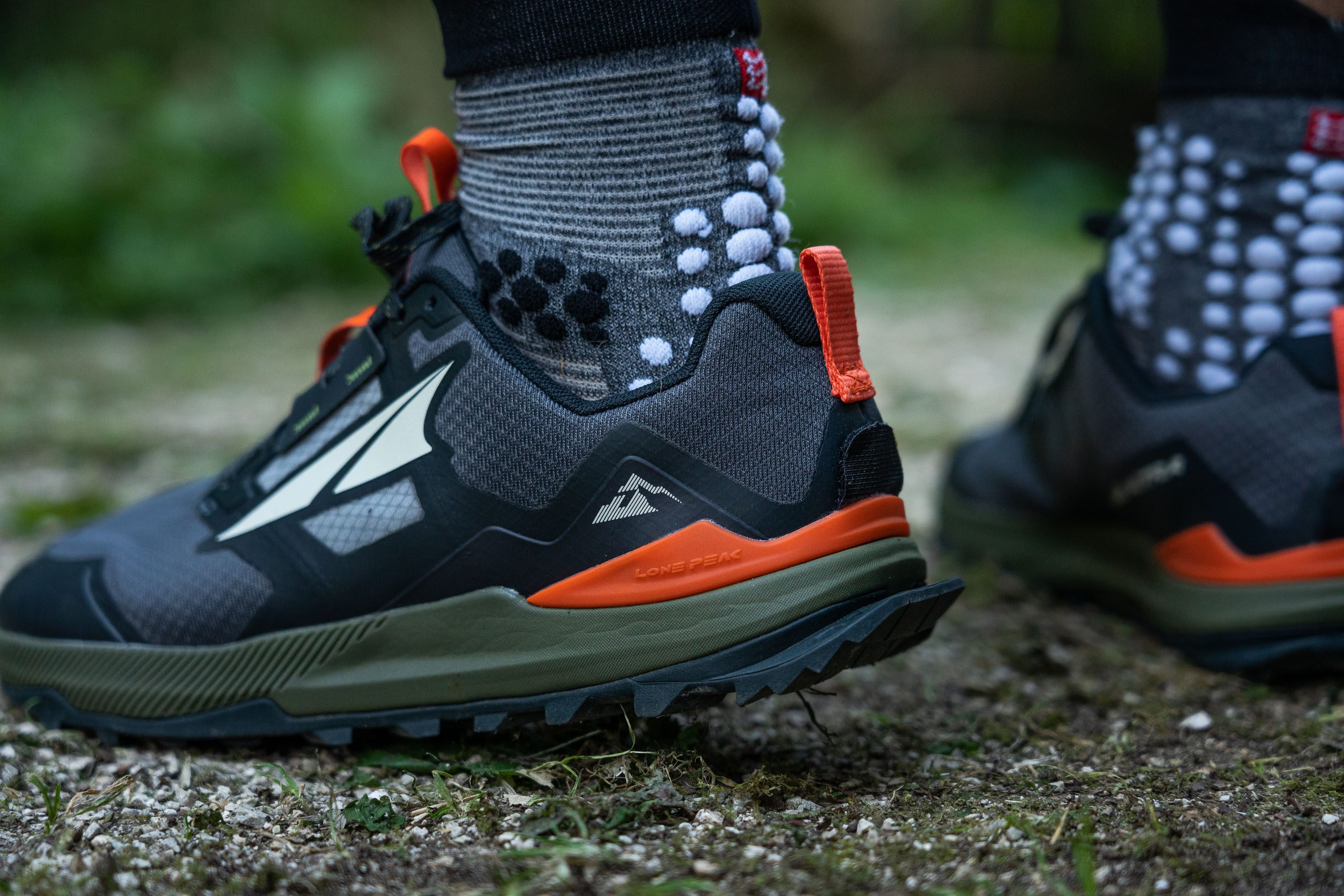
Pricey trail runners
At a price point of $150, the Altra Lone Peak 7 comes off as a tad expensive. But given how much the prices have gone up over the past year, this Altra shoe actually ended up around the average $147 of trail running shoes.
